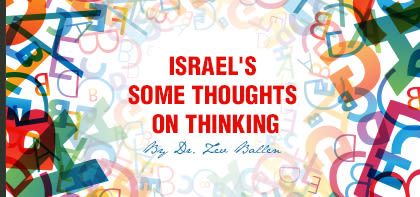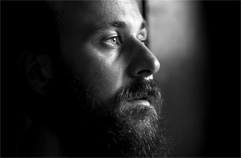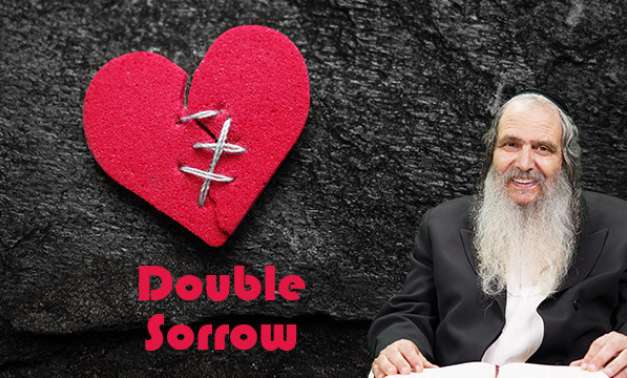
Some Thoughts on Thinking
Like in a jigsaw puzzle, If you don’t know what the completed picture is supposed to look like, you obviously won’t know what to do with pieces...

If I handed you one piece from a thousand piece jigsaw puzzle, what would you look for first? Wouldn’t it be the box with the completed puzzle-picture on the front? Otherwise, how would you know what to do with the piece? If you don’t know what the completed picture is supposed to look like, you obviously won’t know what to do with pieces.
It works the same way with the “puzzle” of life. We need to have clarity about how the various parts of our lives connect to each other; how those parts fit into larger parts of our lives and ultimately how the larger parts of our lives fit into the overall life plan that we have for ourselves. Most people today are unhappy, not because they don’t have good things happening in their lives, but because they don’t understand how those good things need to fit together. Everyone has a deep desire to feel more “together.” This power is the soul’s power of ratzon (desire), and our main desire is for self-integration and wholeness.
The total picture of a person requires that he integrate his values with his actions; his thoughts with his emotions; his materialism with his spirituality; his alone time with his social time; his self-love with his love for others, and his service to people with his service to G-d.
People need to think though what they are aiming for in life and predicate whether a particular decision or action fits into their overall plan for themselves or not. Even if someone is doing many good things if those  things are not well connected to his overall goal or interfere with his overall purpose, they need to come under careful scrutiny. When you start to really think about your life, you will realize that not everything falls into the same category and level. You need to draw distinctions between things. One way to know if something is for your or not is the amount of negativity and stress that it causes you. If, for example, doing a lot of community service is causing you to experience more negative thoughts and emotions, it’s a sign that it isn’t a piece that can fit into your life, at least for the time being.
things are not well connected to his overall goal or interfere with his overall purpose, they need to come under careful scrutiny. When you start to really think about your life, you will realize that not everything falls into the same category and level. You need to draw distinctions between things. One way to know if something is for your or not is the amount of negativity and stress that it causes you. If, for example, doing a lot of community service is causing you to experience more negative thoughts and emotions, it’s a sign that it isn’t a piece that can fit into your life, at least for the time being.
When you have at least a general working system for how you want your life to go, you won’t be thrown off when you’re suddenly confronted by lots of new details – you’ll be able to fit them into your system. You will have made a “place” for the unexpected in your scheme of life. For example you may be offered a promotion with much more money but it requires a lot of traveling and being away from home. In order to know how accepting the new position fits into your life scheme, it’s necessary to ask: “What else is likely to result from my taking this job? Does this job fit into the arrangement – the shape and pattern of the life I have now? A person who isn’t truthful with himself is bound to be disappointed.
A young Torah scholar had a deep desire to sit and learn for a number of years before becoming a teacher. The deepest part of him knew that this was the right path for him to take. His soul was on fire to be well grounded in Scripture, Talmud, Midrash and Halacha (Jewish law) before he began his career. He and his wife were living on a very modest budget, to say the least, but their lives were happy nonetheless because this was the life that they had envisioned and planned for from the beginning.
Suddenly everything changed when he was offered a position as a Rebbe (a teacher) at a prestigious yeshiva in Jerusalem. He jumped and took the job without thinking about the rest of his life and he ended up very saddened by the decision he made. He felt bogged down by the many hours that it took him to prepare his lectures, the long bus ride to and from Jerusalem, the extra time he needed to make for his students, not to mention the administrative and “political” red tape that he had to deal with – At the end of the day he was exhausted and had much less time for his own learning. If he would have had the emuna to stick to his plan he could have avoided what happened. The key is to weigh each new potential change in the context of your current life situation. This is where meditation and personal pray are essential.
For anyone who would like their lives to run more smoothly and happily, here’s my suggestion to you. Make a list of the elements of your life. For example: start with the most important people in your life and work “outwards” to less important people but those who you still deal with in one way or another. You might call that element of your life “my relationships.” Then you can do the same thing for your finances, your recreation, your time to learn, to pray, community service, socialization, alone time, traveling etc.
Once you have analyzed and listed the components of your life. You’ll have a very handy checklist to use when you’re considering making a change in your life, because you’ll be able to see if the potential change is in synchrony with the overall picture of your life or not.
When you are considering a potential change ask yourself:
How will you accomplish it? What do you need to accomplish it? How will you feel about this change in a month? In 6 months? In 2 years from now? How about timing, does it need to be done immediately or can it wait? Does the change involve other people? Are they people you can count on? Would it be better to wait until you could do this more independently? How necessary is the change? Go through your list and ask yourself how this change would affect each of your relationships, your finances, your quality of life, your time for yourself and the other important projects that you’re working on now or have coming up? You’ll need to really develop sensitivity for making these kinds of distinctions so you’ll know how the change would fit into your overall purpose for your life.
And finally, the most important context to synthesize: does this change bring you closer to G-d, or does it take you further from G-d.
May G-d help us all to have the clarity to make the right distinctions and the right decisions about our lives!










11/09/2016
great advice
Dr.Ballen thanks for a very helpful guide for decision making! This is the stuff they should teach in high school. I also learned to make sure decisions are never made under pressure, out of guilt or without seeking the advice of a trusted friend or Rabbi.
11/09/2016
Dr.Ballen thanks for a very helpful guide for decision making! This is the stuff they should teach in high school. I also learned to make sure decisions are never made under pressure, out of guilt or without seeking the advice of a trusted friend or Rabbi.